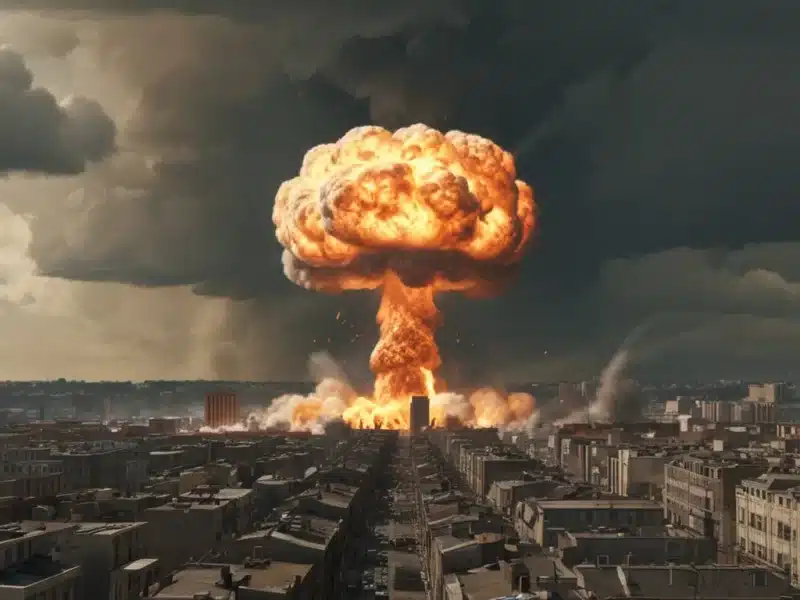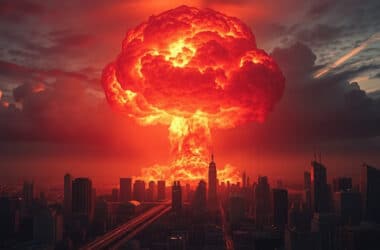Nuclear war poses an existential threat with catastrophic consequences, and the ongoing conflict in Ukraine has escalated tensions between the United States and Russia, bringing the world dangerously close to such a scenario. The Biden administration’s decision to allow Ukraine to use U.S.-provided missiles to strike within Russian territory has significantly raised the stakes. Former Russian President Dmitry Medvedev and other Russian officials have issued stark warnings about the potential for a direct nuclear conflict. Russia’s alarming rhetoric and actions, such as Dmitry Suslov suggesting a demonstration nuclear explosion and Vladimir Solovyov declaring nuclear war inevitable, reflect a growing belief in an unavoidable showdown with the West.
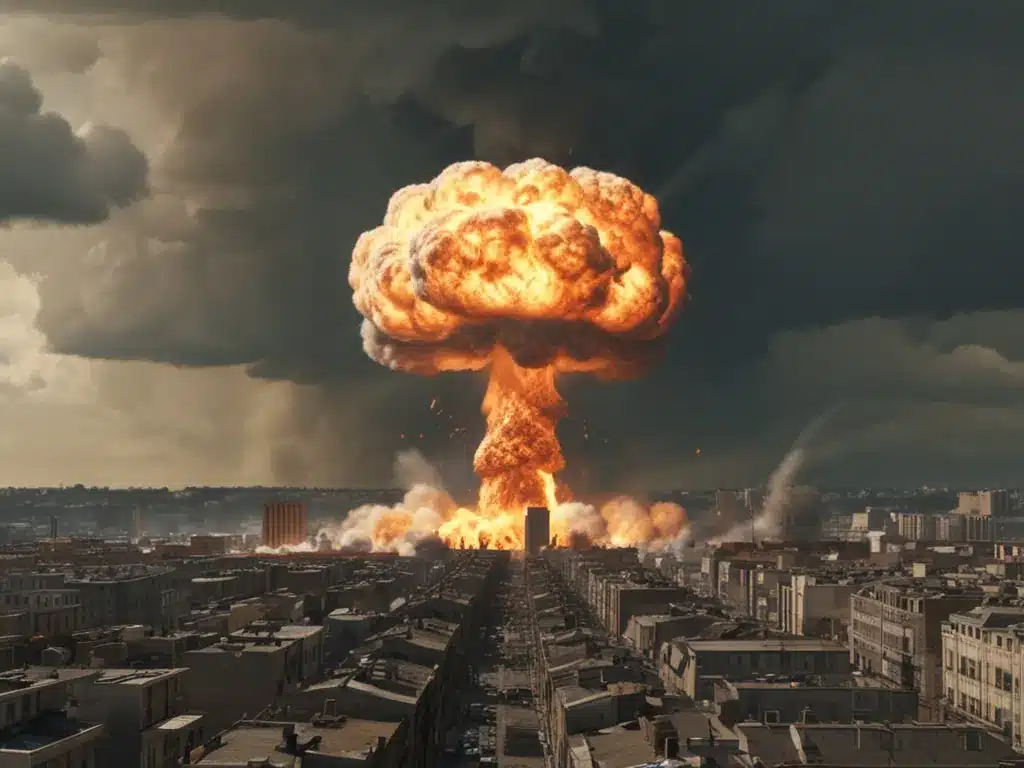
Ukraine’s attacks on Russian radar systems and NATO’s preparations for potential conflict further exacerbate the situation. Global tensions are also rising, with U.S.-China relations strained over Taiwan and continued volatility in the Middle East. The urgent need for de-escalation is clear, but public awareness and urgency in addressing the crisis remain low. World leaders must pursue diplomatic solutions to avoid plunging into an unprecedented disaster.
Escalating Tensions in Ukraine
The Biden administration’s decision to allow Ukraine to use U.S.-provided missiles to strike deep within Russian territory has significantly raised the stakes. Former Russian President Dmitry Medvedev issued a stark warning that this policy shift could precipitate a direct nuclear conflict between the two superpowers.
Medvedev, who served as Russia’s president from 2008 to 2012 and could potentially lead the country again, stressed the gravity of the situation. His public statements highlight the real risk of nuclear escalation and the dire consequences it could bring. Medvedev emphasized that miscalculations involving tactical nuclear weapons could lead to fatal mistakes, underlining the high population density in Europe and the strategic nuclear capabilities of both nations.
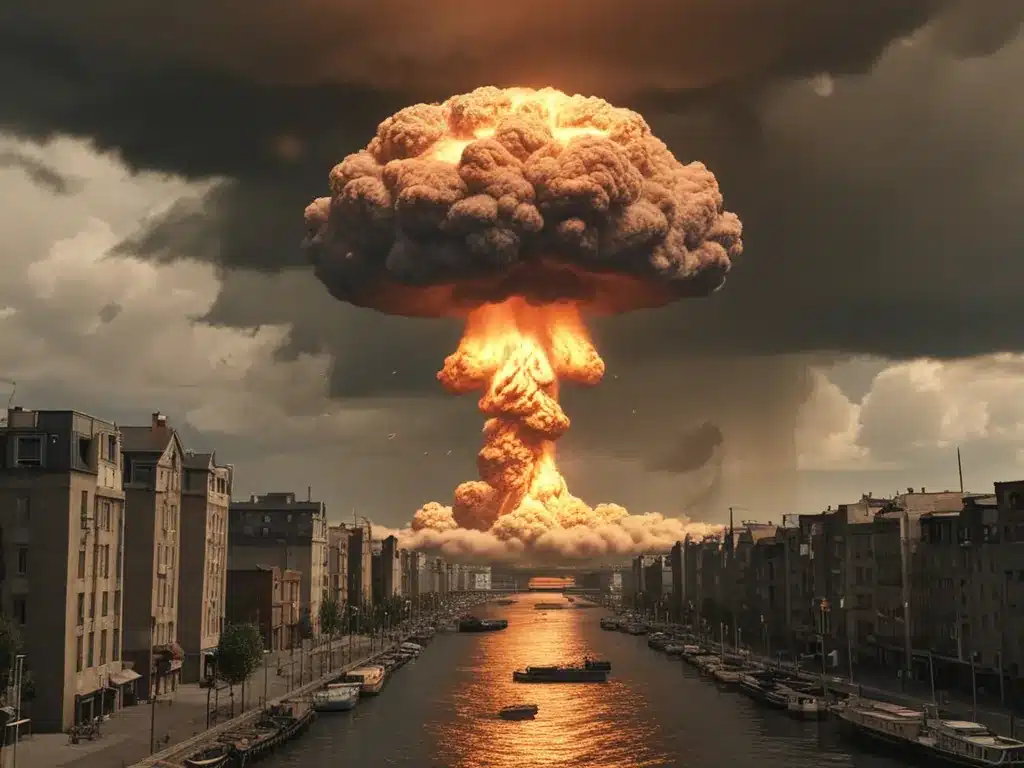
Threats from Russian Officials
The rhetoric from Russian officials has been increasingly alarming. Dmitry Suslov, a member of the Russian Council on Foreign and Defense Policy, has suggested a demonstration nuclear explosion to convey the seriousness of Russia’s intentions. Such an act, he argued, could restore the fear of nuclear war that has historically prevented major conflicts between great powers.
This sentiment is echoed by prominent Russian journalist Vladimir Solovyov, who declared that nuclear war is inevitable. His statements reflect a growing consensus within Russia that a final showdown with Western powers is unavoidable and that striking first in a nuclear conflict offers the best chance of survival.
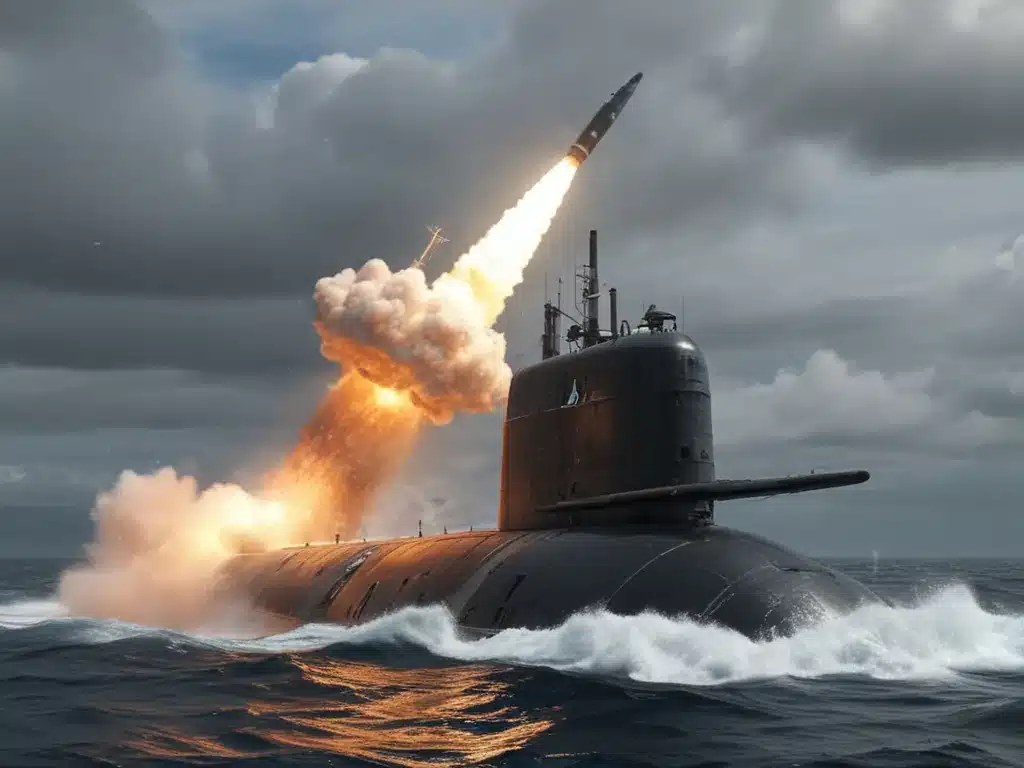
Provocations and Responses
Ukraine’s recent attacks on Russian early-warning radar systems have further exacerbated tensions. These strikes, deep inside Russian territory, could be interpreted as preparatory moves for potential nuclear strikes by the U.S. or as desperate attempts to fully commit NATO to the conflict. Either scenario increases the risk of a catastrophic miscalculation.
NATO’s plans to deploy American troops to the frontlines of Europe in the event of an all-out conflict with Russia add another layer of complexity. The alliance is preparing new land corridors to quickly move soldiers through central Europe, bypassing local bureaucratic impediments. These preparations underscore the seriousness with which NATO views the potential for escalation.
Global Implications and Further Conflicts
The risk of nuclear conflict extends beyond the immediate U.S.-Russia dynamic. President Joe Biden has not ruled out deploying American troops to Taiwan in the event of a Chinese invasion, further straining U.S.-China relations. This stance comes at a time of heightened tensions, with Taiwan’s new president being an outspoken critic of Beijing.
Simultaneously, the Middle East remains a volatile region. Recent Israeli airstrikes in Syria, targeting Iranian military advisers and possibly more militia members, illustrate the potential for regional conflicts to escalate. The interconnected nature of these global hotspots increases the likelihood of a broader, more devastating conflict.
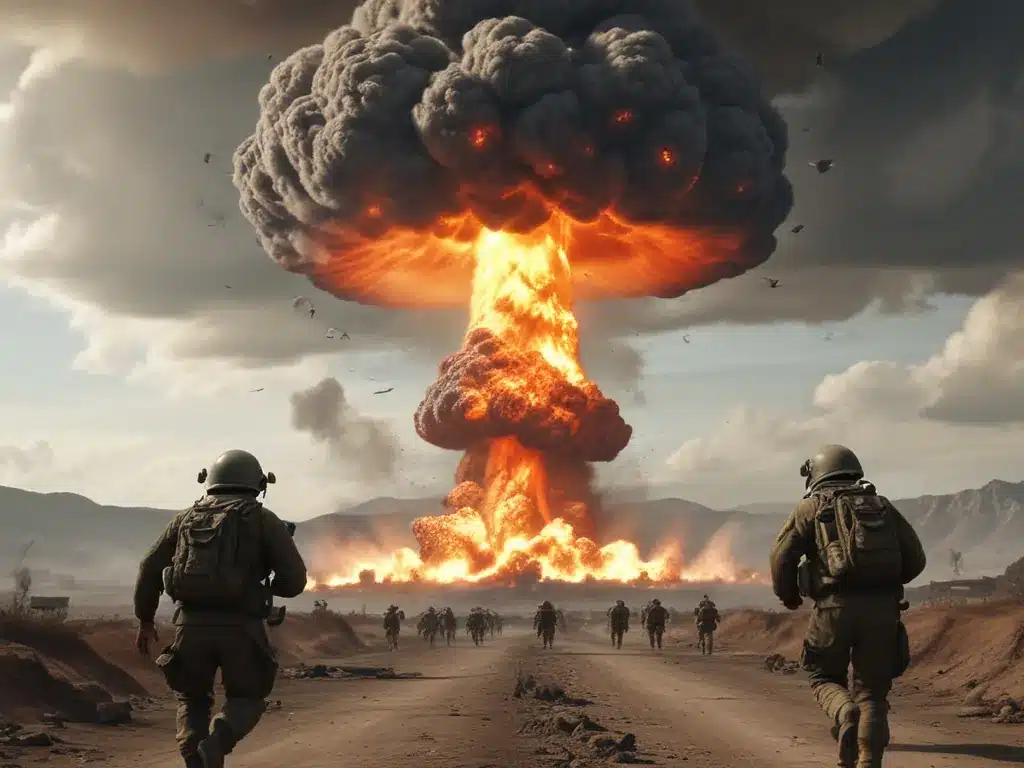
The Urgent Need for De-escalation
Given the dire consequences of a nuclear war, it is imperative for world leaders to pursue de-escalation strategies. The current trajectory of the conflict in Ukraine, coupled with rising tensions in other regions, demands a concerted effort to find diplomatic solutions. The risk of miscalculation is too great, and the stakes are too high to continue down the path of escalation.
The general public, particularly in the United States, remains largely unaware of how close the world is to a nuclear confrontation. Major news networks focus on domestic politics, while Russian media is filled with discussions of war. This disparity in public awareness contributes to a lack of urgency in addressing the escalating crisis.
Insights
- Nuclear war would result in millions of immediate casualties and global famines.
- The conflict in Ukraine has escalated U.S.-Russia tensions to dangerous levels.
- Russian officials are increasingly vocal about the inevitability of nuclear conflict.
- Global hotspots like Taiwan and the Middle East add to the risk of broader conflicts.
- Public awareness of the nuclear threat remains alarmingly low.
Blind Spot
A potential overlooked detail is the influence of domestic politics on international decisions. Leaders might prioritize short-term political gains over long-term global security, increasing the risk of miscalculation and escalation.
Looking Ahead
The threat of nuclear war looms large over the current geopolitical landscape. The decisions made by leaders in the coming months will determine whether the world steps back from the brink of catastrophe or plunges into an unprecedented disaster. It is crucial for all parties involved to recognize the gravity of the situation and to work towards peaceful resolutions.
The stakes could not be higher. The world must heed the warnings of experts and officials who understand the catastrophic potential of nuclear conflict. Diplomacy, dialogue, and a commitment to peace are essential to preventing a disaster that would change the course of human history forever.
FAQ: The Imminent Threat of Nuclear War
1. What are the potential consequences of a nuclear war between the United States and Russia?
The immediate casualties would be in the millions, with hundreds of millions more succumbing to the ensuing nuclear winter and global famines.
2. How has the conflict in Ukraine escalated tensions between the U.S. and Russia?
The Biden administration’s decision to allow Ukraine to use U.S.-provided missiles to strike deep within Russian territory has significantly raised the stakes, potentially leading to a direct nuclear conflict.
3. What warnings have been issued by former Russian President Dmitry Medvedev?
Medvedev warned that the policy shift by the U.S. could precipitate a direct nuclear conflict and emphasized the risk of miscalculations involving tactical nuclear weapons.
4. What alarming suggestions have been made by Russian officials?
Dmitry Suslov suggested a demonstration nuclear explosion to convey the seriousness of Russia’s intentions, while journalist Vladimir Solovyov declared that nuclear war is inevitable.
5. How have Ukraine’s actions further exacerbated tensions?
Ukraine’s recent attacks on Russian early-warning radar systems could be interpreted as preparatory moves for potential nuclear strikes, increasing the risk of catastrophic miscalculation.
6. What are NATO’s plans in the event of an all-out conflict with Russia?
NATO plans to deploy American troops to the frontlines of Europe and prepare new land corridors to quickly move soldiers through central Europe, highlighting the seriousness of the potential escalation.
7. How do global hotspots contribute to the risk of nuclear conflict?
Heightened tensions in regions like Taiwan and the Middle East increase the likelihood of broader conflicts, further straining global stability and raising the risk of nuclear escalation.
8. Why is public awareness about the threat of nuclear war important?
The general public, especially in the U.S., is largely unaware of the proximity to a nuclear confrontation, contributing to a lack of urgency in addressing the escalating crisis.
9. What strategies are essential to prevent a nuclear conflict?
Diplomacy, dialogue, and a commitment to peace are crucial to de-escalating tensions and avoiding catastrophic miscalculations that could lead to nuclear war.
10. What is the urgency for world leaders to act regarding nuclear tensions?
World leaders must recognize the gravity of the situation and pursue diplomatic solutions to step back from the brink of catastrophe and ensure global peace and stability.
- Hoth Therapeutics breakthrough! 🧬✨ Why one patient sent Hoth Therapeutics stock forecast soaring by 81% in a single day! - September 8, 2024
- BloomZ Stock Price Just Exploded! Here’s the scoop on their latest alliance and why investors are excited 💥 - September 8, 2024
- The 10-year Treasury rate chart shows a surprising twist… Did hedge funds miscalculate with their record shorts? 🤔 - September 8, 2024
💥 GET OUR LATEST CONTENT IN YOUR RSS FEED READER
We are entirely supported by readers like you. Thank you.🧡
This content is provided for informational purposes only and does not constitute financial, investment, tax or legal advice or a recommendation to buy any security or other financial asset. The content is general in nature and does not reflect any individual’s unique personal circumstances. The above content might not be suitable for your particular circumstances. Before making any financial decisions, you should strongly consider seeking advice from your own financial or investment advisor.



